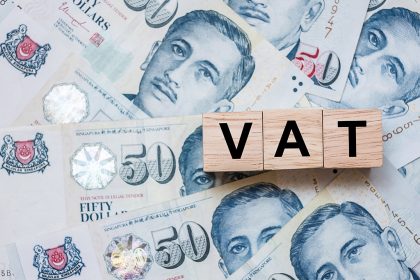Singapore plans to exempt cryptocurrencies that are intended to function as a medium of exchange from Goods and Services Tax (GST) – the local equivalent of Value-Added Tax (VAT). If accepted, the exemption will take effect on January 1, 2020.
The Singaporean government’s taxation agency proposed removing goods and services tax (GST) from cryptocurrency transactions if they serve as an exchange medium.
In their publication, the Inland Revenue Authority of Singapore (IRAS) gave an e-Tax draft guide for treatment on “Digital Payment Tokens,” in order to exempt any entity dealing with such digital assets from GST liabilities.
If accepted, the proposed exemption should become valid on January 1, 2020, and will overtake the current system where the supply of digital payment tokens is still taxed.
In the document, IRAS said that until now, cryptocurrencies that function as a medium of exchange have been treated as a way of business where there are two separate supplies: a taxable token supply and a supply of the relevant goods and services.
The document sets out the two proposed core changes to taxation rules in future:
“The use of digital payment tokens as payment for goods or services will not give rise to a supply of those tokens; and (ii) The exchange of digital payment tokens for fiat currency or other digital payment tokens will be exempt from GST.”
The IRAS also proposed that in most of the cases the new rules will exempt token rewards generated by mining. They explained:
“There is generally no sufficiently close nexus between the service provided by the miner to the persons whose transactions are verified, and the mined tokens that the miner received from the blockchain ecosystem. The parties paying the mined tokens are also not identifiable.”
By contrast, where “a miner performs services to an identifiable party or parties, in return for a consideration, this constitutes a taxable supply of services”.
The IRAS has defined digital payment tokens as ones that have the following characteristics:
“(a) it is expressed as a unit; (b) it is fungible; (c) it is not denominated in any currency, and is not pegged by its issuer to any currency; and (d) it is, or is intended to be, a medium of exchange accepted by the public, without any substantial restrictions on its uses as consideration.”
As the example, IRAS set Bitcoin (BTC), Ether (ETH), Litecoin (LTC), Dash (DASH), Monero (XMR), Zcash (ZEC) and XRP.
Stablecoins do not qualify as digital payment tokens under this circumstance:
“A digital token pegged to US dollars will not qualify as a digital payment token but may instead fall under the list of financial services.”
IRAS is not amateur in setting rules for the cryptocurrencies since Singapore is one of the major nations outside the US that has incorporated virtual currencies for payment or transaction purposes.
Bitcoin is the dominant player and is accepted by most businesses. The second most accepted in Singapore is Litecoin, which is also a globally used crypto.
In 2014, the Monetary Authority of Singapore (MAS) started working on the management of these currencies to reduce the risks of money laundering and financing of terrorist activities. Singapore is the first country in the world to regulate these currencies without putting any barrier in its growth.
next